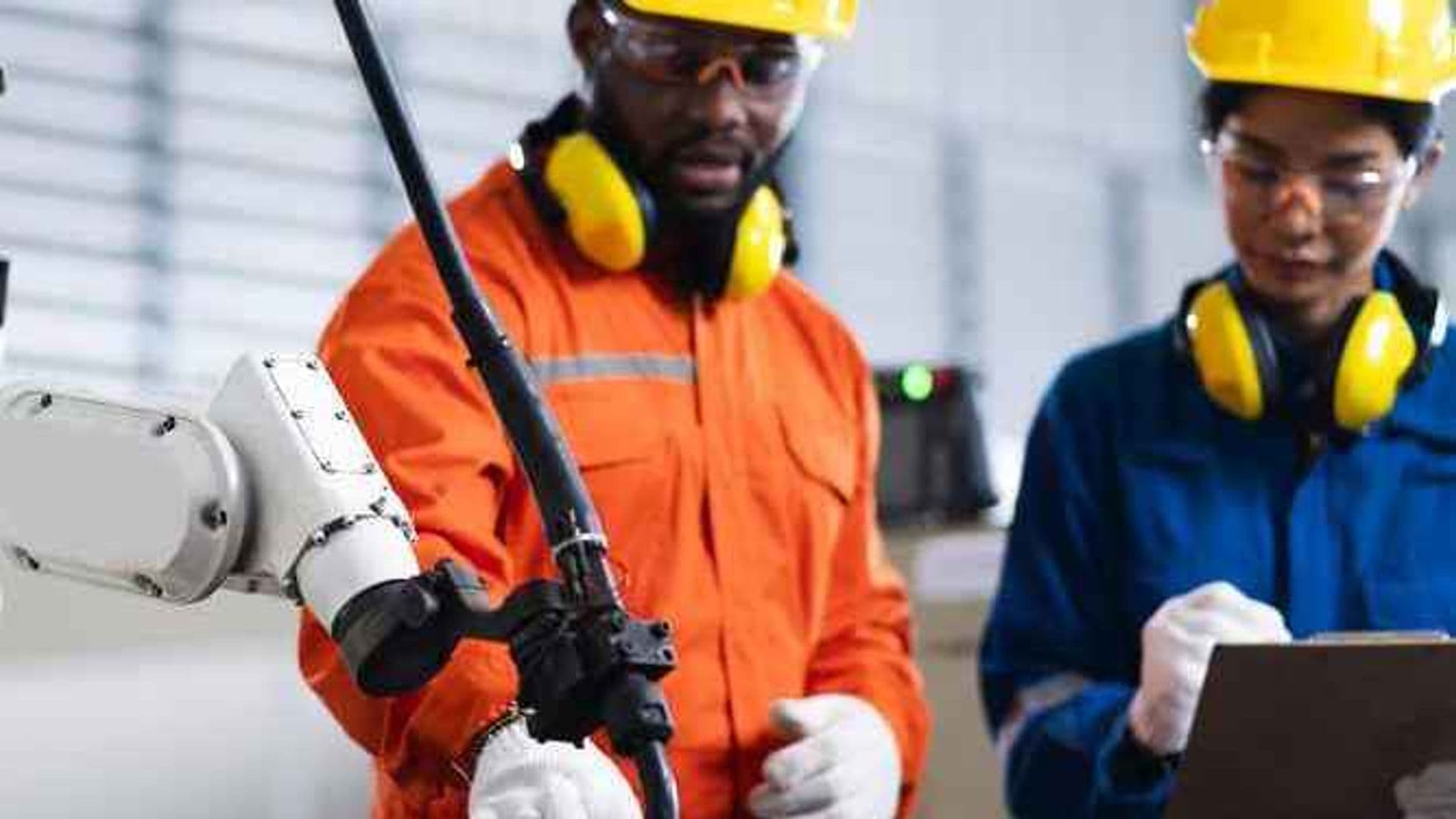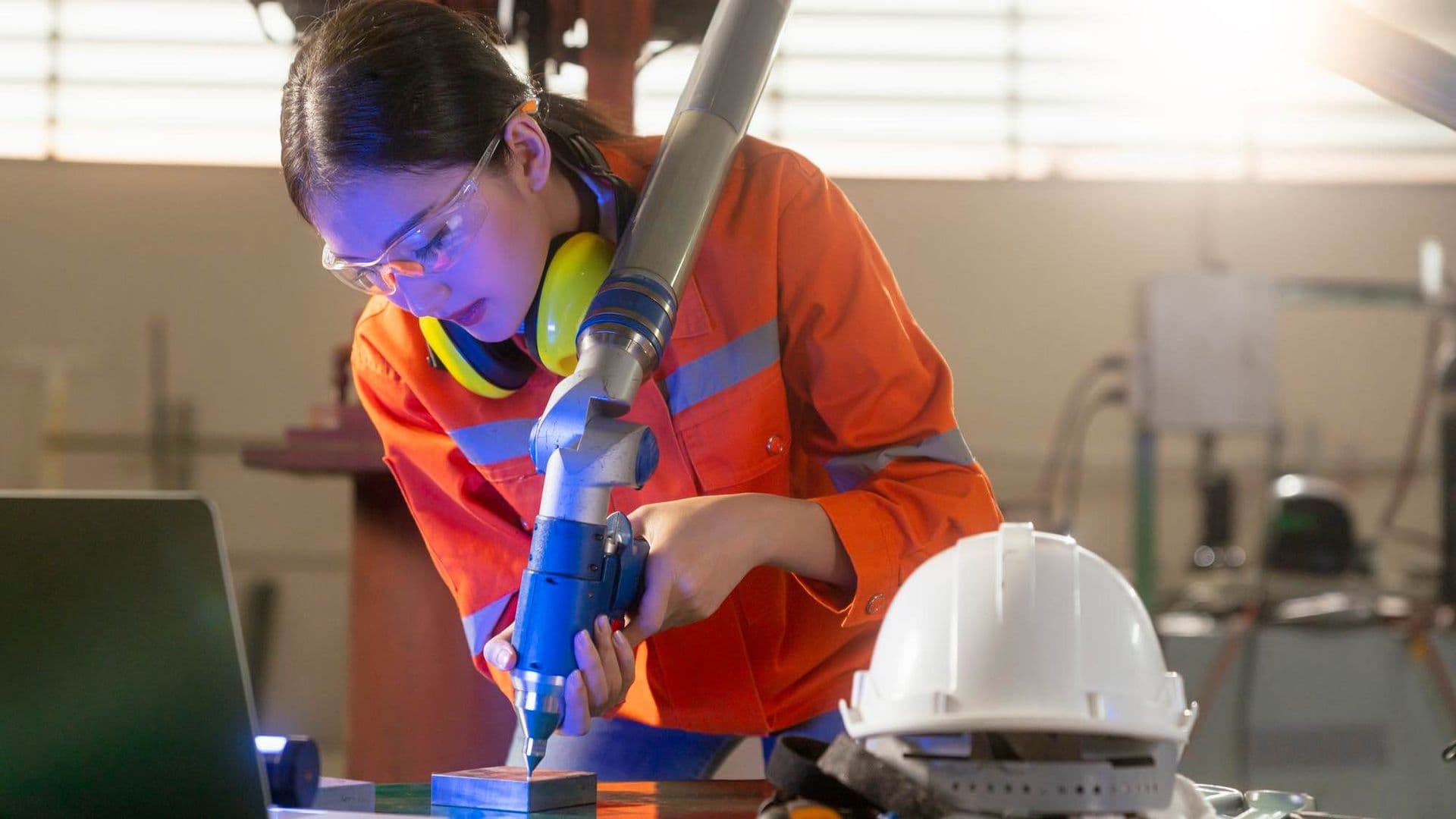
Mechatronics for Equipment Maintenance: Virtual Lab

All Unmudl Originals
Employers Looking To Hire Out of This Course
Developed in Conjunction With
Course Details
This course is a follow-on course to the Unmudl Original Mechatronics for Equipment Maintenance course. In 40 hours, build your skills through practice simulations and troubleshooting. Explore robotics, fluid power, mechanical, electrical, and motor controls to get ready for an advanced manufacturing workplace. This course is a virtual lab that offers online learning that is available when you are.
After This Course, You Will Be Able To- Define mechatronics and understand the role of maintenance and troubleshooting in mechatronic systems
- Explain the role of pneumatics and hydraulics in mechatronics and describe fluid systems, key components, and approaches to troubleshooting
- Describe the use of mechanical drives including selection, maintenance, and alignment
- Explain electrical circuits and electric motor controls and describe their basic operation and troubleshooting, including relay control, event sequencing, and time-based sequencing
- Describe the role of robotics in mechatronics and explain basic robotic operation, programming, and control
- Apply theoretical principles in virtual maintenance scenarios
- Apply principles of safe practice
Certificates
Skills you will learn
Knowledge Outcomes and Experience
Eligibility
You will need to self-certify that you meet the following pre-requisites:
1. Basic equipment use (e.g. minimum of 1-year experience in commercial or industrial environment)
2. Basic electrical background (e.g. minimum of 1-year experience using electrical principles and theory)
3. Basic mechanical background (e.g. minimum of 1-year experience use of hand tools)
4. Desire to develop mechanical aptitude and troubleshooting abilities
5. Strong safety orientation
6. Critical thinking skills
Additional Attendance Information
Start the course any day, any time, from anywhere. This course is on-demand.
You must have either 1) completed the Mechatronics for Equipment Maintenance course, or 2) pass an assessment demonstrating that you have acquired the knowledge and skills needed to be successful in the Virtual Lab course.
Additional Details:
- Builds on the knowledge base provided in the current Mechatronics for Equipment Maintenance course to focus on skill development
- Designed for working learners to complete in 40 hours @ 8 hours/week for 5 weeks
- Introduces Robotics content
- Focuses on applied “hands-on” practical simulations (see course experience matrix to job requirements for more details)
- Option for learners, who have already acquired the basic knowledge elsewhere, to test out of the Mechatronics for Equipment Maintenance course prerequisite
- While the two courses are aligned, there is zero repetition between the knowledge-focused Mechatronics for Equipment Maintenance course and the new Virtual Lab course
Instructor Details

Related Jobs
View all jobs
Related Courses
 $674.00
$674.00 $700.00
$700.00







